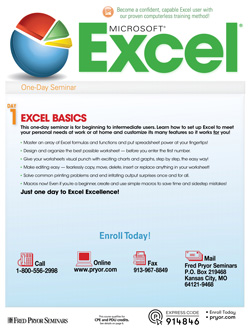How to stay on task, on topic and on time during in-person and online meetings
According to the U.S. Bureau of Labor Statistics, the annual loss to the business sector from unnecessary meetings is $37 billion. Additionally, mid-level managers spend 25-60 percent of their time in meetings, with top executives spending up to 90 percent. And what is the result? Most researchers believe that up to 50 percent of time is wasted. In this modern era of remote team management, effective strategies for productive meetings are more crucial than ever. In just one hour of training, you will learn how to make meetings productive by inviting the right people, building a strategic agenda and getting positive participation from attendees. You'll also learn how to determine if a meeting is the best option to achieve desired goals.
From unidentified roles of meeting participants to the lack of a coherent meeting agenda, it's all too easy for meetings to get off-topic and out of control. Don't spend another minute suffering through meetings that drag, digress and destroy team morale. Keep your local and remote teams in contact, engaged, and working collaboratively effectively. If you want to start being a part of meetings that produce positive results, you’ll enjoy this powerful and informative program. You’ll learn the tools necessary to keep your group on task, on topic, and on time — eliminating meeting mayhem.

How to stay on task, on topic and on time during in-person and online meetings
In just one hour of training, you will learn how to make meetings productive by inviting the right people, building a strategic agenda and getting positive participation from attendees. You'll also learn how to determine if a meeting is the best option to achieve desired goals.
- Learn to prepare meetings with purpose and direction.
- Gain insight on meeting structure—whom to invite and how many participants are ideal.
- Know when a meeting in-person or online is and isn't appropriate.
- Strategies to transition from in-person to virtual meetings.
- How to handle flawed "group thinking" that rarely generates new ideas or leads to high-quality decision-making.
- Ways to mediate problem participants derailing the conversation, or only providing negative feedback.
- How to avoid ineffective handouts and materials that keep meetings from moving forward.
- Strategies to represent key points with effective visual aids.
- Methods to generate decisions, action items, and takeaways that get results and create progress.
Every member of your organization who conducts or participates in meeting of any kind.


